Ye-Yi Wang
Carnegie Mellon University
Fine-tuning Small Language Models as Efficient Enterprise Search Relevance Labelers
Jan 06, 2026Abstract:In enterprise search, building high-quality datasets at scale remains a central challenge due to the difficulty of acquiring labeled data. To resolve this challenge, we propose an efficient approach to fine-tune small language models (SLMs) for accurate relevance labeling, enabling high-throughput, domain-specific labeling comparable or even better in quality to that of state-of-the-art large language models (LLMs). To overcome the lack of high-quality and accessible datasets in the enterprise domain, our method leverages on synthetic data generation. Specifically, we employ an LLM to synthesize realistic enterprise queries from a seed document, apply BM25 to retrieve hard negatives, and use a teacher LLM to assign relevance scores. The resulting dataset is then distilled into an SLM, producing a compact relevance labeler. We evaluate our approach on a high-quality benchmark consisting of 923 enterprise query-document pairs annotated by trained human annotators, and show that the distilled SLM achieves agreement with human judgments on par with or better than the teacher LLM. Furthermore, our fine-tuned labeler substantially improves throughput, achieving 17 times increase while also being 19 times more cost-effective. This approach enables scalable and cost-effective relevance labeling for enterprise-scale retrieval applications, supporting rapid offline evaluation and iteration in real-world settings.
Pre-training Multi-task Contrastive Learning Models for Scientific Literature Understanding
May 23, 2023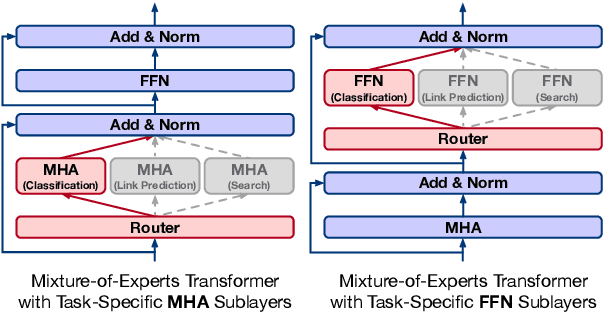
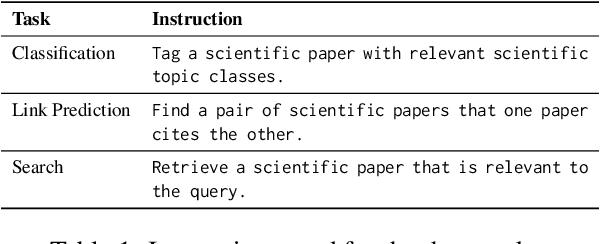

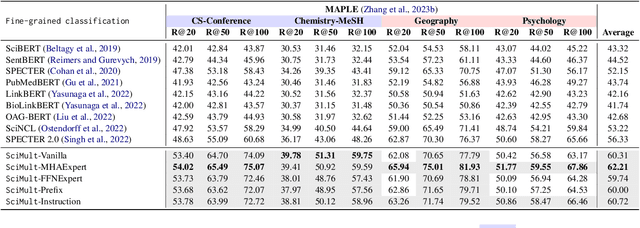
Abstract:Scientific literature understanding tasks have gained significant attention due to their potential to accelerate scientific discovery. Pre-trained language models (LMs) have shown effectiveness in these tasks, especially when tuned via contrastive learning. However, jointly utilizing pre-training data across multiple heterogeneous tasks (e.g., extreme classification, citation prediction, and literature search) remains largely unexplored. To bridge this gap, we propose a multi-task contrastive learning framework, SciMult, with a focus on facilitating common knowledge sharing across different scientific literature understanding tasks while preventing task-specific skills from interfering with each other. To be specific, we explore two techniques -- task-aware specialization and instruction tuning. The former adopts a Mixture-of-Experts Transformer architecture with task-aware sub-layers; the latter prepends task-specific instructions to the input text so as to produce task-aware outputs. Extensive experiments on a comprehensive collection of benchmark datasets verify the effectiveness of our task-aware specialization strategy in various tasks, where we outperform state-of-the-art scientific LMs.
Metadata-Induced Contrastive Learning for Zero-Shot Multi-Label Text Classification
Feb 11, 2022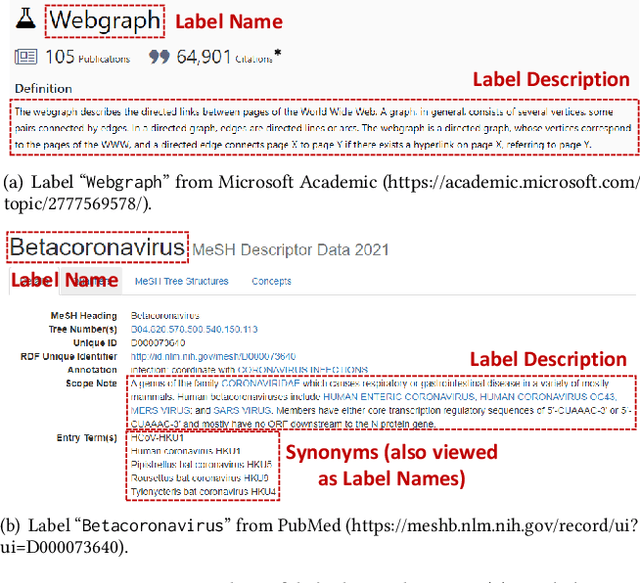
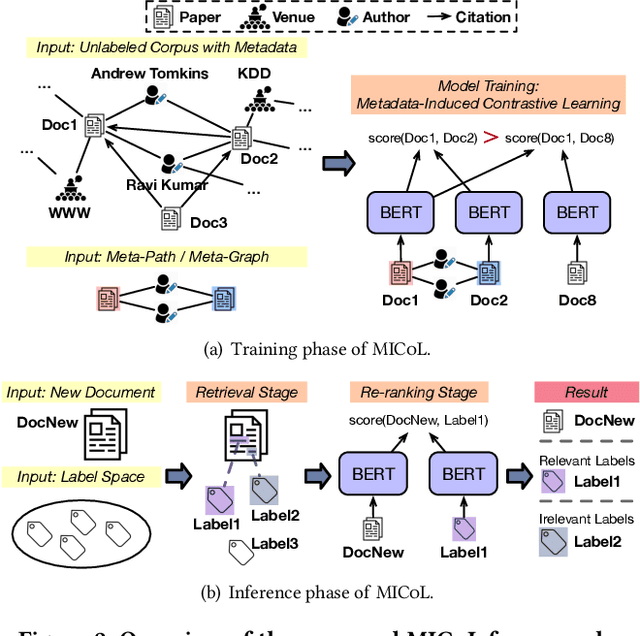

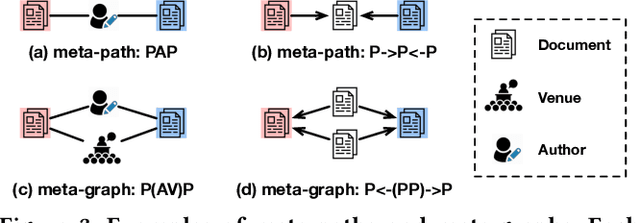
Abstract:Large-scale multi-label text classification (LMTC) aims to associate a document with its relevant labels from a large candidate set. Most existing LMTC approaches rely on massive human-annotated training data, which are often costly to obtain and suffer from a long-tailed label distribution (i.e., many labels occur only a few times in the training set). In this paper, we study LMTC under the zero-shot setting, which does not require any annotated documents with labels and only relies on label surface names and descriptions. To train a classifier that calculates the similarity score between a document and a label, we propose a novel metadata-induced contrastive learning (MICoL) method. Different from previous text-based contrastive learning techniques, MICoL exploits document metadata (e.g., authors, venues, and references of research papers), which are widely available on the Web, to derive similar document-document pairs. Experimental results on two large-scale datasets show that: (1) MICoL significantly outperforms strong zero-shot text classification and contrastive learning baselines; (2) MICoL is on par with the state-of-the-art supervised metadata-aware LMTC method trained on 10K-200K labeled documents; and (3) MICoL tends to predict more infrequent labels than supervised methods, thus alleviates the deteriorated performance on long-tailed labels.
Dual-Coding Theory and Connectionist Lexical Selection
May 31, 1994
Abstract:We introduce the bilingual dual-coding theory as a model for bilingual mental representation. Based on this model, lexical selection neural networks are implemented for a connectionist transfer project in machine translation. This lexical selection approach has two advantages. First, it is learnable. Little human effort on knowledge engineering is required. Secondly, it is psycholinguistically well-founded.
 Add to Chrome
Add to Chrome Add to Firefox
Add to Firefox Add to Edge
Add to Edge